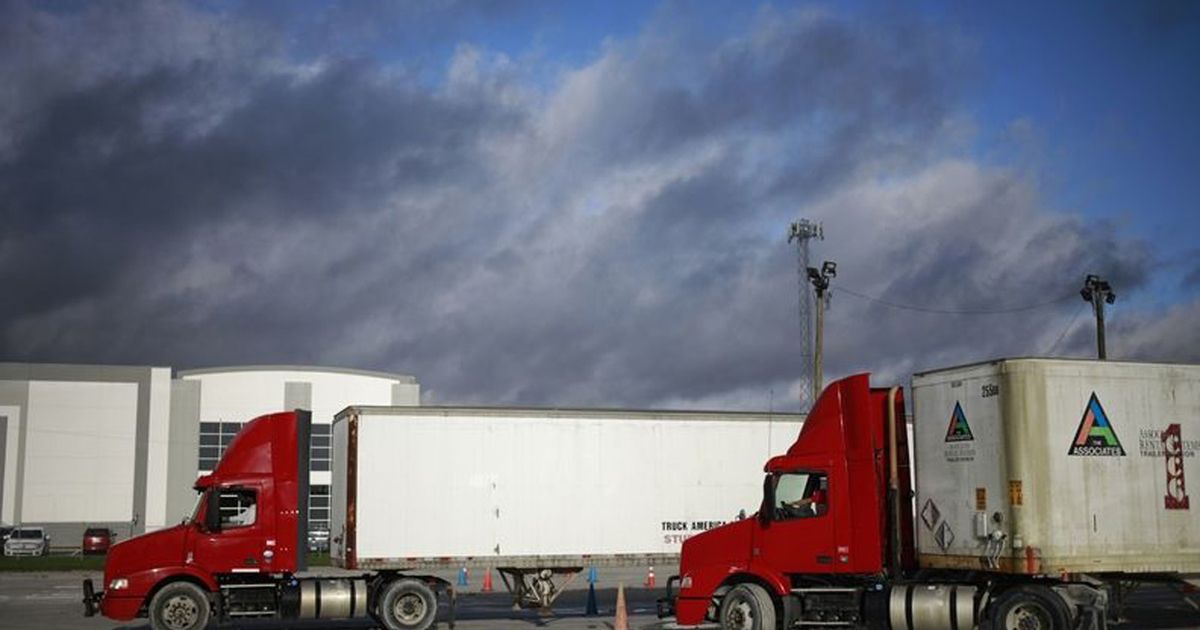
Striking South Korean truckers are considering blocking shipments of coal to a power plant if the government rejects their demands for minimum pay guarantees, a senior trade union official said Monday.
The Cargo Truckers Solidarity Union, on strike for a seventh day, is weighing several options to press its demands, including stopping coal to generate electricity and shutting down petrochemical complexes by blocking their shipments in and out.
“We are thinking of a complete blockade,” union leader Kim Jae-gwang told Reuters, referring to coal shipments to a power plant in Gunsan, North Jeolla Province that he did not name, which uses trucks for its coal.
“But we hope such a situation doesn’t happen.”
The impact of a power plant blockade would be limited in terms of national electricity output, even in the high-demand summer, but would mark a significant intensification of the truckers’ action.
The government estimated that the strike has cost key industrial sectors more than $1.2 billion in lost production and unfilled deliveries, as the damage spreads deeper through Asia’s fourth-largest economy.
The union is protesting against soaring fuel prices and is demanding minimum pay guarantees. Four rounds of negotiations with the government have failed to find a compromise.
Some 7,050 people, or about 32 percent of union members, were striking Monday, according to an updated transport ministry estimate. The ministry said in a statement it plans to continue talks with the union to resolve the situation.
Kim said his members were letting some movement of traffic for now, to prevent the shutdown of petrochemical facilities, which would cost a lot of time and money to restart. But the union said it would “reconsider” that if the government did not show willingness to negotiate.
The strike is a major test for South Korea’s new conservative president Yoon Suk-yeol, raising the risk of eroding his support, distracting him from his agenda and sowing the seeds of long-term antagonism with powerful unions.
On Monday Yoon called for ways to reduce the impact of the strike on industry. A transport ministry official said no new meeting with the union was scheduled.
The strike has forced steelmaker POSCO to shut some plants because of a lack of space to store finished products.
It also caused manufacturing losses of 5,400 vehicles for South Korean automakers between June 8-11, according to the Korea Automobile Manufacturers Association, with Hyundai Motor cutting production for some assembly lines. Cement makers have also reduced output.
Petrochemical firms have also been hit, seeing average daily shipments from factories tumbling 90 percent as truckers target complexes in Ulsan, Yeosu and Daesan, an industry association said.
So far there have been no reports of major production disruption at Samsung Electronics or other semiconductor firms.
Kim Yang-pang, a researcher at Korea Institute for Industrial Economics & Trade, estimated companies such as Samsung and its suppliers had enough supplies of raw materials in stock for at least two weeks.
Samsung declined to comment.
The government has urged the truckers to return to work and also deployed some 100 military vehicles to help companies with shipments.
The truckers are demanding an extension of subsidies, set to expire this year, that guarantee minimum wages as fuel prices rise. The Yoon administration says it is up to parliament to change the legislation.
As supply bottlenecks plague the global economy, any prolonged slowdown in the production and shipment of chips, petrochemicals and autos could add to fears about rising inflation and slowing growth.
South Korea’s inflation is set to hit a 24-year high of 4.8 percent this year, the Organization for Economic Cooperation and Development said last week, cutting its growth forecast to 2.7 percent from a December projection of 3.0 percent.